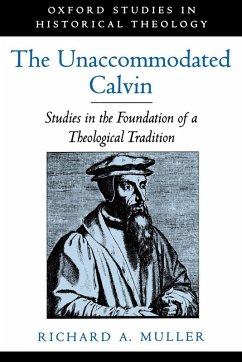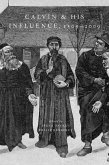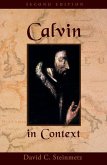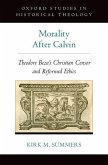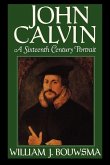This book attempts to understand Calvin in his sixteenth-century context, with attention to continuities and discontinuities between his thought and that of his predecessors, contemporaries, and successors. Richard Muller is particularly interested in the interplay between theological and philosophical themes common to Calvin and the medieval doctors, and in developments in rhetoric and method associated with humanism. He shows that Calvin's theology evidences the impact of humanist philology and rhetoric, of patristics, and also - both positively and negatively - of the categories of medieval scholastic thought. Calvin's conclusions, together with those of a group of contemporary Reformed and Lutheran thinkers, famously became the basis of much later Protestant theology. But understood in its sixteenth-century context, Muller argues, Calvin's theology proves both intriguing and intractable to twentieth-century concerns. This intractable and unaccomodated Calvin, he says, is important to our historical understanding in direct proportion to the level of distortion found in several generations of modern dogmatic analysis of Calvin's thought.
Hinweis: Dieser Artikel kann nur an eine deutsche Lieferadresse ausgeliefert werden.
Hinweis: Dieser Artikel kann nur an eine deutsche Lieferadresse ausgeliefert werden.

